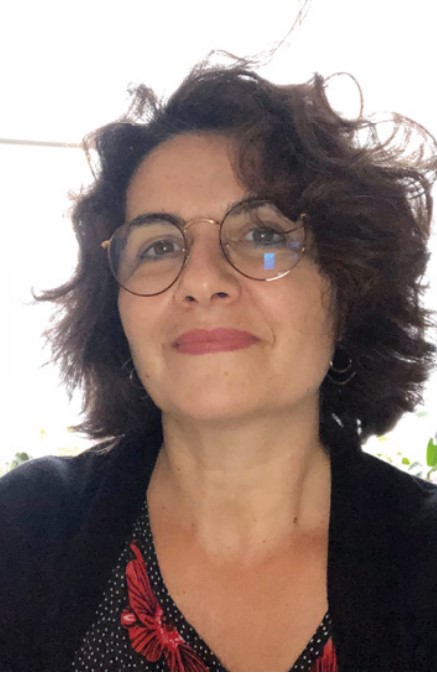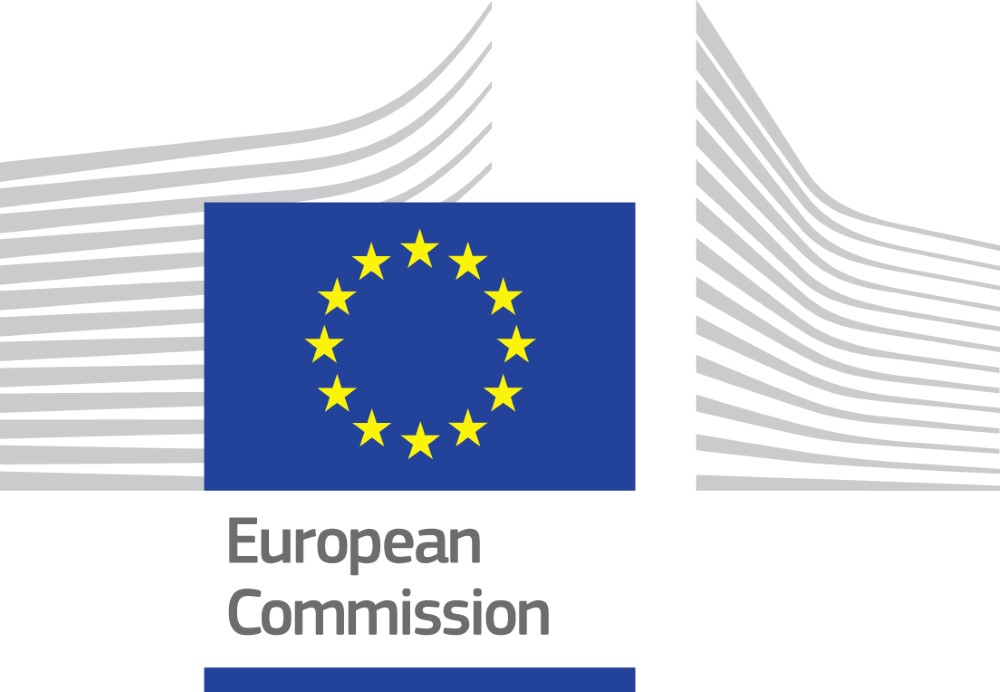Doctoral Mobility under the MSCA programme: An interview with Claire Morel - MCAA Magazine February 2023

Claire Morel is the Head of Unit in charge of the Marie Skłodowska Curie Actions for the mobility and training of researchers including the development of excellent doctoral programmes, at the European Commission’s Directorate General(DG) for Education, Culture, Youth and Sport. Before that, she was the Head of Unit for international cooperation in the same DG, with a particular focus on the international dimension of the Erasmus+ programme and international policy dialogues in higher education and youth issues with various partners of the EU in the world.
The European Union offers a plethora of research, training, and career development opportunities to academics, including doctoral candidates. Two such generous initiatives include the Erasmus+ programme and the Marie Skłodowska-Curie Actions (MSCA). At the EuroScience Open Forum 2022, a session was devoted to doctoral mobility under the two programmes. We interviewed Claire Morel, Head of Unit in charge of the MSCA programme.
Could you briefly tell us about the importance of mobility (intersectoral, international, interdisciplinary) in the MSCA programme, and how it benefits society?
Mobility is at the heart of the Marie Skłodowska Curie Actions, and as you mention, in all its forms: international, interdisciplinary and intersectoral mobility. This has been the DNA of the programme since the launch of the first Marie Curie fellowships more than 30 years ago.

Since 1990 with the precursor Human Capital and Mobility Programme, which became the Marie Curie Fellowships in 1996, MSCA has been the European Union’s flagship programme for researchers’ training and career development through mobility, in particular for doctoral and postdoctoral research training. Mobility provides researchers access to new and different expertise, working environments, culture, network data and infrastructures not available at their home institution. The experience, the new perspectives and research methods they gain increase their employability and make them sought-after candidates for careers in other institutions, within and outside academia.
Through mobility, the programme also fosters international collaboration both within and beyond Europe (40% of our researchers are from outside the EU), and the development of strong institutional partnerships, as well as partnerships between academia, industry, public bodies and other non-academic sectors that are at the heart of the research process in MSCA. Mobility allows scientists to better understand the needs of companies, to innovate and to convert knowledge and ideas into products and services for wider economic and societal benefits.
Given the current sustainability and impending economic crisis, what is MSCA’s vision for research, innovation, and career development?
The Horizon 2020 mid-term evaluation highlighted the many strengths of the programme: its bottom-up structure; its achievements in terms of equality and gender balance in research and innovation; its contribution to strengthening Europe’s attractiveness in the global race for talent; its emphasis on cross-sectoral collaborations and interdisciplinarity; as well as its role in raising awareness about the importance of science and research amongst the general public.
All these strengths remain relevant in the current context. Under Horizon Europe, the European Commission has also defined new priorities to tackle emerging issues, including the safeguard of academic freedom and support to researchers at risk, as well as support to the new priorities of the European Research Area, notably balanced talent circulation, open science, and sustainability.
In addition, the bottom-up nature of the MSCA complements the top-down character of traditional collaborative research activities under Horizon Europe. The MSCA contributes to all European priorities and we have recently highlighted the contribution that the programme can bring to the five EU Missions of Horizon Europe (Climate adaptation, Oceans, Smart cities, Healthy Soil and Cancer), for example through the organisation of cluster meetings bringing together researchers and policy makers.
Of course under Horizon Europe, MSCA continues to support the career development of researchers through training and networking; both at the level of individual researchers, and more systematically at the level of institutions, and research and innovation ecosystems.
The MSCA plays an important catalytic role to introduce new practices in institutions
MSCA plays an important catalytic role to introduce new practices in institutions, for example through the introduction of the European Charter for Researchers and the Code of Conduct for the Recruitment of Researchers as compulsory elements of MSCA. The Charter and Code recognise the value of all forms of mobility as means to enhance the professional development of researchers. They also recognise the multiple roles of researchers(supervisors, project coordinators, communicators, mentors, etc),ethical principles, research freedom, public engagement, continuing professional development, attractive working conditions, access to training and networking opportunities, transparency of the recruitment process, etc.
We have introduced incentives for organisations and researchers interested in developing cooperation with the non-academic world: through more flexible industrial doctorates, or by allowing postdoctoral researchers interested in doing part of their research in a non-academic sector to prolong their fellowship by six months. Incentivising researchers to gain experience outside academia increases their employability and boosts the permeability of talents across Europe.
Nearly half (40%) of the MSCA fellows are from non-EU countries with a limited visa, who, upon visa expiration, face forced departures and increased challenges to find positions in their home countries. Coincidentally, academia has also been hit by the ‘great resignation’, where researchers are leaving academia for more permanent job opportunities, currently lacking within the established academic system.
Can the MSCA programme act as an effective body to increase the retention rate of early and midcareer researchers? If so, how?
Based on the results of surveys conducted with MSCA fellows after their fellowship, we can say that the retention rate of international researchers, and the reintegration of European researchers who had left the EU is high within MSCA. Moreover, MSCA is widely seen by many European researchers working abroad as a tool for them to return to their countries of origin.
For instance, a 2020 survey conducted with the Marie Curie Alumni Association (MCAA) members, suggested that most respondents were still employed in Europe at the time of the survey. Nearly 70% of respondents were in EU-27 countries. Outside the EU-27, the main countries where respondents lived were the United Kingdom (12%),Switzerland, the USA (3%), India and Norway (1%). The latest evidence from questionnaires completed by MSCA individual postdoctoral fellows under Horizon 2020 indicate that two years after the end of their project, 89% of fellows were employed in Member States and2% in associated countries. Of the fellows working in Member States,11% were non-EU citizens.
When it comes to retention within academia: based on the results of the survey of MCAA members, in 2020, nearly 75%of former fellows still worked in academia. There is also evidence from previous studies, including comparisons between former MSCA fellows and the career trajectories of other researchers, that the programme improves MSCA fellows’ career prospects and achievements in academia.
In particular, the programme has contributed to closing the gender gap in the sector with MSCA female researchers having higher chances than their non-MSCA peers to attain professorships and resume academic careers after a career break.
As already mentioned, the MSCA promotes the mobility of researchers across sectors, to equip them with the knowledge, experience and skills needed in research today, whether in academia or outside. For instance, based on evaluation questionnaires, a significant share of graduates from MSCA Industrial Doctorates(co-supervised with non-academic partners) found employment in industry or the business sector within three months after the end of the fellowship.
The current research atmosphere has identified an urgent need for increased mental health support for academics. How is the MSCA programme addressing this important issue?
Mental health in academia is an issue of concern that the MSCA has tackled in various ways, in particular through its alumni association(MCAA), which has been extremely active in generating discussion and piloting mental health support schemes with the MSCA/MCAA community. Their work has led this year to the launch of the REFERENT initiative which is a mentoring scheme to organise peer support for helping MSCA early-stage researchers navigate mental health issues.
One of the main causes of worsening mental health of academics is related to difficult, pre carious and stressful working conditions. Through its various actions, MSCA promotes better working conditions, both within its projects but also more broadly within higher education institutions and other R&I entities. The MSCA encourages the alignment of working conditions for researchers in accordance with the principles set out in the European Charter for Researchers and Code of Conduct for the Recruitment of Researchers.

Adequate supervision and mentorship play a particularly important role in the wellbeing of researchers, especially those starting their research careers as doctoral or postdoctoral fellows. The programme published Guidelines on Supervision which are a set of recommendations for individuals and institutions who receive MSCA funding. These guidelines are in line with the principles set out in the European Charter for Researchers. All MSCA participants must adhere to these guidelines on a best-effort basis.
You have had a career dedicated to youth and education excellence programmes. What have been some of the most motivating reasons in your career to keep pushing the boundaries and making changes within this sector?
I have indeed spent most of my career working in EU institutions in the fields of vocational education and training, higher education, youth, student mobility and now research and innovation.
When I started, these were policy areas where the EU had not invested a lot. Erasmus was launched in 1987, followed by Tempus in 1989, a programme for the modernisation of higher education in Central and Eastern Europe that was launched to train a new generation of young people that would ultimately join the EU. Several other programmes followed, covering the EU, and different regions of the world and concentrated on different levels of education. The idea at the time was that in order to build an open, democratic and reconciled Europe, it was important to bring an educational and cultural dimension to economic policies. It has been fascinating to follow the development of these programmes, to contribute to their improvement, open them to new regions of the world, and enrich them with new elements over the years. The fact that they have a direct impact on millions of young people’s lives, on their future personal and professional development, that they provide a concrete and positive contribution to what the EU can offer, have been major motivating factors for never leaving these policy areas.
Although professionally beneficial, “mandatory research mobility” could come at the cost of work and personal life disruption for the individual. Can you give examples of ways the programme ensures support to these researchers?
As mentioned earlier, mobility (international, inter-sectoral and inter-disciplinary) lies at the heart of the MSCA. When it comes to the potential negative effects of mobility on researchers’ work, the programme’s evaluation criteria take into account the capacity of the host organisations to ensure that they can provide the fellows with the required expertise, facilities and infrastructure to carry out their research work.

It is an obligation under the grant agreement that the host organisation provides the researcher with adequate supervision and the means to implement their project, including research and training activities. The fellowships include funding dedicated to training and networking. It also provides a mobility allowance for the researchers throughout the duration of their project, as well as family allowances.
We have recently introduced further flexibility in the allowances
We have recently introduced further flexibility in the allowances to mitigate some of the issues raised by fellows and stakeholders. For instance, under Horizon 2020, there was no provision to adjust the fellows’ allowances if their parental status changed during the project. This has now changed under Horizon Europe to ensure that fellows are not discouraged or put at a disadvantage financially should they have children during the course of their fellowship. By regularly reviewing and improving their working conditions, we ensure that MSCA researchers do not feel disadvantaged when embarking on a mobility path.
During their Erasmus+ or MSCA project, some researchers could end up in challenging situations, for instance, discrimination in their host institution based on social identities (like gender, race, language), sexual harassment, bullying and so forth. What are some of the measures taken by the MSCA and Erasmus+ programmes to safeguard researchers who face such difficult situations? Do you think it would be useful to establish a third-party point of contact they could confidentially reach out to and that could then report back to your programmes?
The recruiting organisation must support the researcher and manage the MSCA grant in accordance with the provisions of the European Charter for Researchers, which includes obligations for employers to establish appropriate procedures to deal with conflicts, complaints and appeals from researchers.
In case of major difficulties or conflict that cannot be resolved through these procedures, the MSCA fellows have several third-party contact points beyond their host organisation: 1) the MSCA project coordinator when the latter is different from the recruiting organisation is their first point of contact; 2) the dedicated project officer in the Research Executive Agency can provide assistance and inform them of their rights under the grant agreement and 3) the network of MSCA National Contact Points who can provide expertise and support in the host country and/or in their own language.
Your idea of a third-party point of contact that researchers could confidentially reach out is an interesting one that we could further investigate.
Pooja Khurana
IRRADIUM magazine
Editorial Board Member
poojakhurana.official@gmail.com
TWITTER @PK_ActNow
ORCID 0000-0002-9658-1414